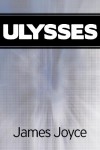Currently reading
Pure trash

This book irritated me to bits. Midway through I had to keep insisting to myself that it was not about the actual New York literary world of the 1840s, but some kind of alternate universe. Why else would you turn Poe's family into insane villains, have Louisa May Alcott attend literary salons (she was 13 at the time), and send Hawthorne into New York to push a manuscript that (in real life) hadn't been written yet? The author clearly researched the time period, but twisted enough details to make many of the characters unrecognizable while simultaneously bashing the reader over the head with her list of famous names.
The Fanny Osgood of this novel is an annoying creature. Selfish, stupid, and obsessed with Poe--her descriptions of him reminded me of Bella worshipping Edward in Twilight--she's also a bizarrely modern single mother. She picks up her pen time after time but, despite the fact that she needs money to support her daughters, writes nothing besides soppy love poems that pay badly and that she later admits she hates. She mooches off of her good friends for over a year but is so self-absorbed that she doesn't notice the cracks in their marriage. I couldn't relate to her and didn't feel caught up in her romance or saddened by her fate at the end of the novel. Looking over the Wikipedia page of the real Fanny was much more emotional and made me realize that I need to find some good nonfiction books about these people instead of reading a soap opera about them.
On the plus side, the cover and frontispiece of this book are both beautiful.












